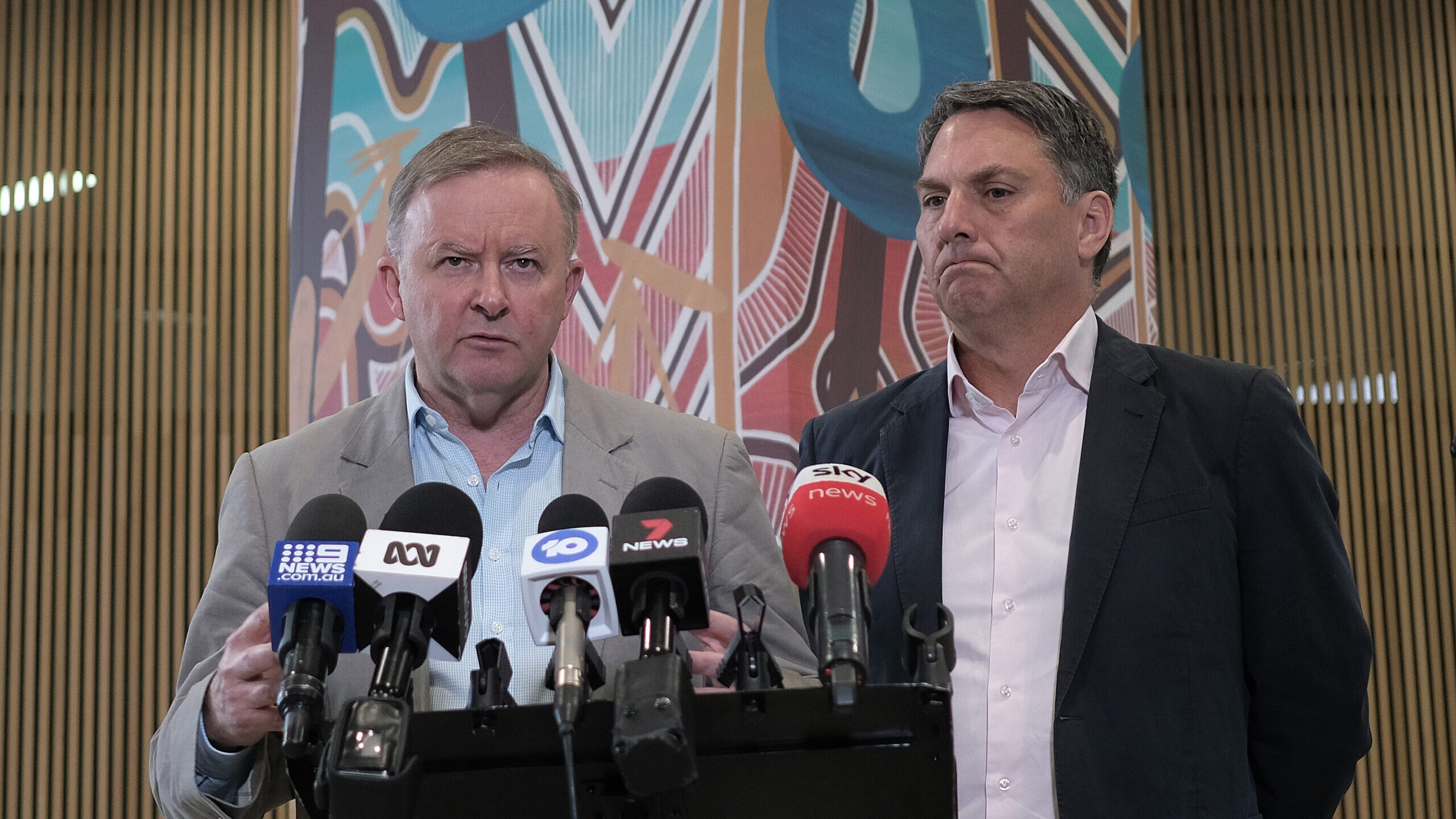Aussie PM fends off AUKUS challenge from unions
AUKUS #AUKUS


Australian PM Anthony Albanese and defense minister Richard Marles, seen in a 2020 file photo. (Luis Ascui/Getty Images)
SYDNEY — Anthony Albanese’s Labor government today handily beat back an attempt by left-wing trade unions inside his party to oppose the AUKUS agreement with the United Kingdom and United States.
The emotionally and historically loaded term “appeasement” was among the sharp words traded at the Australian Labor Party (ALP) conference in Brisbane as some unions and members of Parliament tried to push resolutions that would not allow the party to campaign on the issue of Australia buying nuclear-powered attack subs.
Ultimately, Albanese’s supporters were able to win the day in a voice vote. But the public pushback on Australia’s biggest ever military investment effort shows that there are still large chunks of the Aussie population who are not sold on AUKUS.
Party conferences are where the policy for the next election is shaken out. While members of parliament often go their own way regardless of what the platform says, getting an anti-AUKUS stance onto the official party policy would have made Albanese appear weak and emboldened the opposition parties. The threat to the PM was stiff enough that he addressed the delegates and defended AUKUS in a short speech, saying, “We have to analyze the world as it is rather than as we would want it to be. We have to bring our defense capabilities up to speed and AUKUS is central to that.”
The prime minister sweetened the pot then, reminding the delegates of about the estimated 20,000 “well-paid union jobs” that will come from building submarines in Australia.
Today’s action clears the way for Albanese to tout the AUKUS submarine deal during the next election, expected by 2025. Perhaps more importantly, it protects his flank from the left using any resolution against AUKUS to snipe at him, or for the opposition to do the same. At this point, the Labor government is considered likely to win a second term.
The head of the Electrical Trades Union, Michael Wright, presented the resolution that tried to bar references to nuclear propulsion from the ALP’s platform, and said his union did not support AUKUS. “Serious questions must be asked: is this the best way of securing our national interest? Is this the best spend of $360 billion?” he put to the conference
As the defense industry minister, Pat Conroy, took the microphone someone in the audience called out, saying “you are taking us into war.”
But Conroy told the ALP the party was “proudly anti-war” and said strength was necessary to provide deterrence. “Appeasement,” he said, “invites conflict.”
“Some people claim AUKUS will start a regional arms race. Well, they’re grievously out of touch because I’m here to tell you that that arms race is already happening before our very eyes,” Conroy said.
But at least one Labor MP was willing to break ranks with his government. Josh Wilson from the Western Australian town of Fremantle, rejected Conroy’s argument, calling his wielding of the term appeasement “ridiculous.” It’s an especially notable stance given that Garden Island, center of Australia’s sub fleet on the west coast and the home of HMAS Stirling, is very close to Fremantle.
Defense Minister Richard Marles told the ALP delegates Australia will not violate the Treaty of Rarotonga, which mandates a nuclear-arms free Pacific. The left in Australia had expressed worried that nuclear propulsion might somehow violate the treaty or lower the bar thus allowing others to violate the treaty more easily.
“Now I know that the word nuclear invokes a strong reaction, but we are not about nuclear weapons,” Marles said.
“Indeed, under this arrangement, Australia will remain and fulfil all our obligations under the nuclear proliferation treaty and we will be working with the International Energy Atomic Agency to do that, and we will meet our obligations under the Treaty of Rarotonga because we will never base nuclear weapons on our shores,” the defense minister said.
“But we are talking about nuclear propulsion and, without it, we will not have in 2040 the same submarine capability that (former Prime Minister) Paul Keating gave us in the year 2000.
“And if we take submarines off the table, we will never have left our country more exposed and that will undermine the whole idea of Australian self-reliance, which is at the heart of our platform. Delegates, this is a hard choice but it is actually a clear choice,” he argued.
Recommended